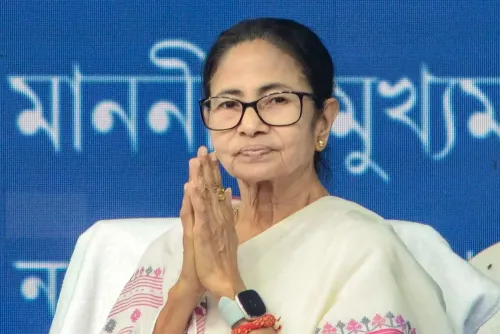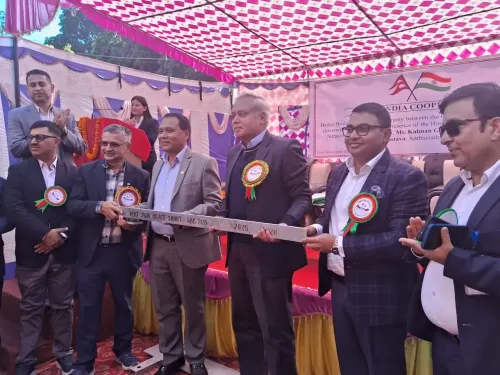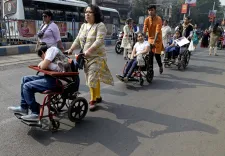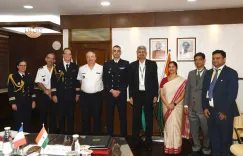How is Mizoram Addressing Unscientific 'Jhum' Farming?
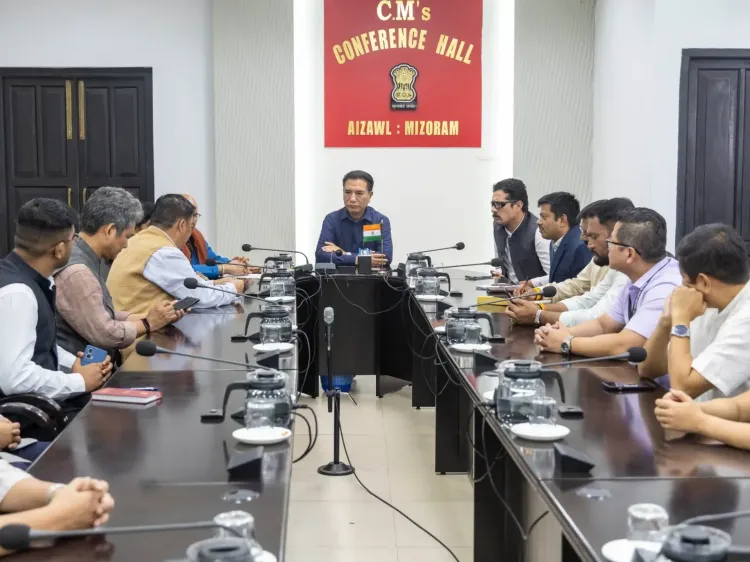
Synopsis
Key Takeaways
- NCST emphasizes the need for alternative agriculture methods.
- Tribal welfare is a priority in Mizoram’s development agenda.
- Mizoram's population is predominantly tribal.
- Governor and Chief Minister support NCST initiatives.
- Focus on women's status and health in tribal communities.
Aizawl, May 1 (NationPress) The National Commission for Scheduled Tribes (NCST), currently on a four-day tour of Mizoram, met separately with both the Governor and Chief Minister on Thursday to discuss protective measures and development programs for the tribal population of the northeastern state, officials reported.
Led by Chairperson Antar Singh Arya, the NCST team also explored different districts to evaluate the welfare and developmental needs of the tribal communities, which represent 94.45 percent of Mizoram’s 1.2 million residents.
The NCST Chairperson emphasized the necessity to eliminate the traditional practice of ‘jhum’ (slash and burn agriculture) that farmers currently employ. He proposed the initiation of a pilot scheme to promote alternative farming methods that would have a lower environmental impact.
During their discussions, Mizoram Governor General Vijay Kumar Singh (Retd) praised the NCST for its proactive approach in evaluating the circumstances and challenges confronting Scheduled Tribes in Mizoram.
He highlighted the significance of focused welfare and development initiatives in a state predominantly populated by Scheduled Tribes.
The NCST delegation shared insights from their travels across various regions of Mizoram, addressing issues identified as crucial for the state’s ongoing progress. This collaboration showcased a shared commitment to improving the welfare and rights of the tribal communities.
In a separate meeting, Chief Minister Lalduhoma expressed gratitude to the NCST Chairman and members for their timely visit and genuine concern for Mizoram's welfare.
He remarked that the State Review Meeting and their visits to the Autonomous District Councils (ADCs) would likely lead to beneficial outcomes for the state. The NCST members commended the Mizoram government’s proactive steps and assured the Chief Minister of their backing in essential areas.
During the review session on Wednesday, NCST Chairperson Antar Singh Arya noted the importance of promoting Hindi in the state and urged the state administration to take appropriate actions in this regard.
Reiterating the primary aim of the NCST, which is to foster the development of tribal communities throughout the nation, he remarked that every possible effort is being made to achieve this goal.
Arya acknowledged the significant contributions of past leaders whose diligence and commitment led to the establishment of the Autonomous District Council, a vital asset for preserving the traditions and culture of the Mara tribal group.
NCST Member Nirupam Chakma provided a brief overview of the Commission’s background, responsibilities, and mandates, sharing his observations on the status of tribal communities in the southern regions and border areas of the state.
NCST Member Asha Lakra emphasized her findings on health, education, and women’s status.
Mizoram Chief Secretary Khilli Ram Meena stated that since 94.45 percent of the population belongs to the Scheduled Tribes (ST) category, all government initiatives are directed towards the welfare, development, and well-being of tribal communities.
State’s Director General of Police Anil Shukla reported that there have been no recorded incidents of atrocities against STs in the past three years. Senior government officials presented the current status of STs and various development programs being implemented.



